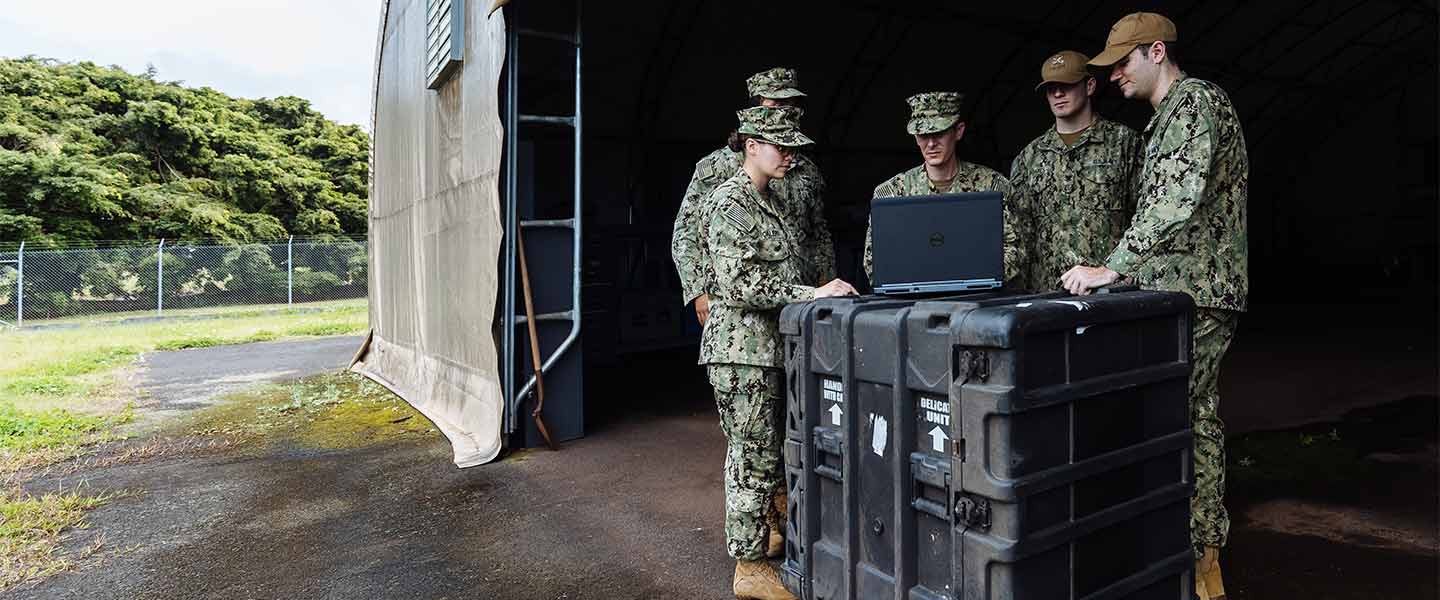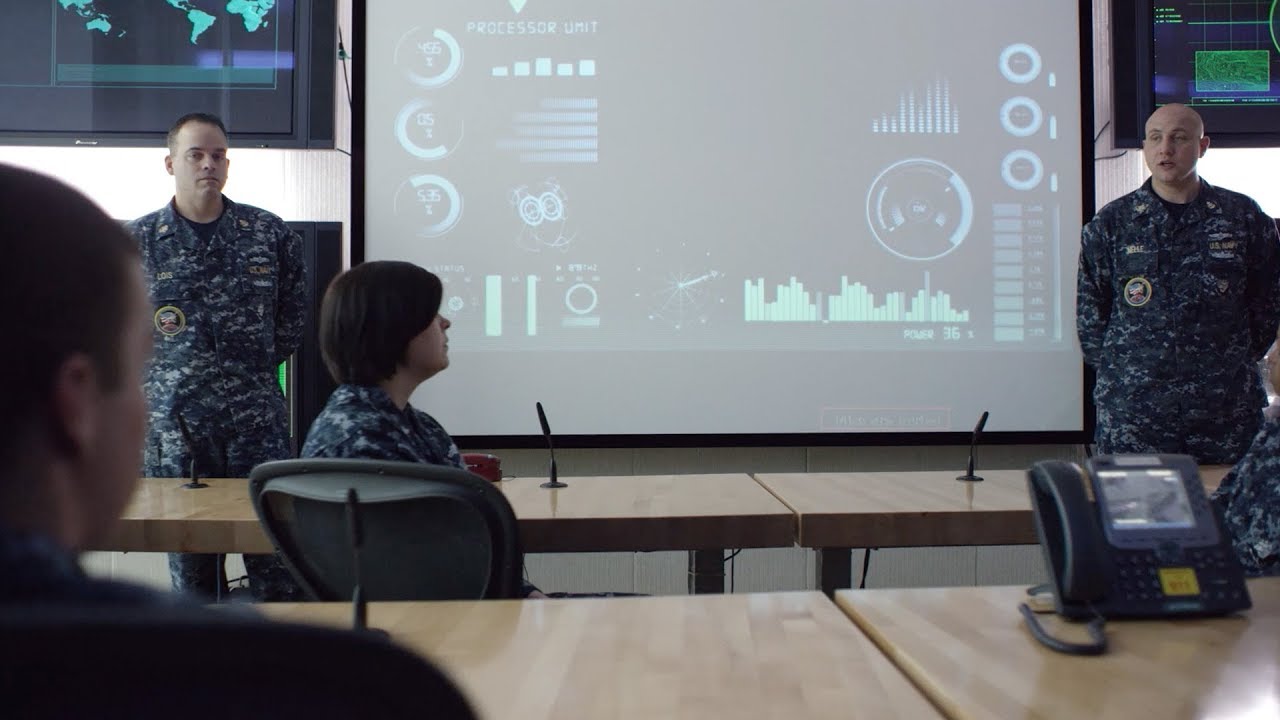What to Expect
More Information
Responsibilities
Cryptologic Warfare Officers (CWOs) are directly involved in every aspect of Naval operations – delivering information to decision-makers by attacking, defending and exploiting networks to capitalize on vulnerabilities in the information domain. As a CWO, you will employ a thorough understanding of sensors and weapons, strategy and tactics, as well as national systems’ capabilities and limitations. This role may include:
- Collecting, processing, analyzing and reporting real-time signal intelligence
- Conducting computer network operations
- Developing and acquiring cutting-edge exploitation and defense systems
- Planning and delivering information warfare effects during exercises and operations
- Leading Information Warfare personnel across a variety of military operations
- Overseeing the work of Cryptologic Technicians – Enlisted Sailors (no degree required) who serve as specialists in cryptology
Work Environment
Cryptologic Warfare Officers assume critically important duties both afloat and ashore. This may include:
- Rotating between sea, shore and educational tours
- Serving at one of the National Security Agency Cryptologic Centers
- Serving aboard ships, submarines and aircraft
- Supporting Naval Special Warfare
- Serving anywhere from the National Security Agency to the Pentagon
Training & Advancement
Those pursuing a Cryptologic Warfare Officer position are required to attend Officer Candidate School (OCS) in Newport, RI.
After completion, they attend an eight-week Information Warfare Basic Course of instruction in Pensacola, FL, to learn the fundamentals of everything from Electromagnetic Theory to Tactical Cryptology to Signals Intelligence Reporting. CWOs must complete specific qualifications as part of their training during Fleet tours and are expected to pursue advanced education opportunities.
Promotion opportunities are regularly available but competitive and based on performance.
Post-Service Opportunities
Specialized training received and work experience gained in the course of service can lead to valuable credentialing and occupational opportunities in related fields in the civilian sector.
Education Opportunities
Wherever you are in your professional career, the Navy can help ease your financial burdens and advance your career with generous financial assistance and continuing education programs. Beyond professional credentials and certifications, Cryptologic Warfare Officers can advance their education by:
- Pursuing opportunities at institutions such as Naval Postgraduate School (NPS) or Navy War College (NWC)
- Completing Joint Professional Military Education (JPME) at one of the various service colleges
Postgraduate education is important to the success of the Cryptologic Warfare Officer. Most CWOs will complete a master’s degree in one of the following: electrical engineering, cyber systems and operations, computer science or space systems.
Qualifications & Requirements
A degree from a four-year college or university is a minimum educational requirement to become a Commissioned Officer. The degree must be in a technical field, preferably in one of the following: information systems, electrical engineering, computer engineering, information operations, computer science, systems engineering, general engineering.
All candidates must also be: U.S. citizens, willing to serve worldwide, eligible for a Top Secret/Sensitive Compartmented Information (SCI) security clearance and qualified for sea duty.
General qualifications may vary depending upon whether you’re currently serving, whether you’ve served before or whether you’ve never served before.
Part-Time Opportunities
There are part-time opportunities available as a Cryptologic Warfare Officer.
Serving part-time as a Navy Reserve Sailor, your duties will be carried out during your scheduled drilling and training periods. During monthly drilling, Cryptologic Warfare Officers in the Navy Reserve typically work at a location close to their homes.
For annual training, Cryptologic Warfare Officers may serve anywhere in the world, whether on a ship at sea or at bases and installations on shore.
Take a moment to learn more about the general roles and responsibilities of Navy Reserve Sailors.
Most of what you do in the Navy Reserve is considered training. The basic Navy Reserve commitment involves training a minimum of one weekend a month (referred to as drilling) and two weeks a year (referred to as Annual Training) – or the equivalent of that.
Cryptologic Warfare Officers in the Navy Reserve serve in an Officer role. Before receiving the ongoing professional training that comes with this job, initial training requirements must first be met.
For current or former Navy Officers (NAVET): Prior experience satisfies the initial leadership training requirement – so you will not need to go through Officer Training again.
Officers who previously held a commission in another United States Military Service, National Oceanic and Atmospheric Administration, Public Health Service, or United States Coast Guard are exempt from attending ODS or LDO/CWO Academy.

































































































































